Special Report
What You Can Do Right Now to Make Staying at Home Easier

Published:
Last Updated:

The outbreak of the novel coronavirus has disrupted American life in unparalleled ways, shuttering businesses, laying off millions of workers, and forcing much of the U.S. population to self-isolate at home. The federal government’s guidelines on social distancing have been extended to April 30, meaning we will be inside for the most part of the day for a few more weeks.
Extending social distancing and stay-at-home orders puts added pressure on already stressed families who have been in some form of social isolation since the middle of March.
Even so, those in quarantine can take solace in the variety of activities and diversions available to help get them through the crisis. 24/7 Tempo has created a list of ideas for what you can do right now to make living at home easier. We reviewed media sources, as well as home decor online sites to create our list.
Click here to see what you can do right now to make living at home easier.
For those who see the world as a glass half full, self-isolation offers an opportunity to get in better physical shape; reconnect with old friends via Zoom or Skype; tackle unfinished home projects; improve your cooking skills; play board games with your family; or grab some quiet time.
The point of all of this is to use your newfound time to make living in isolation more tolerable while waiting out the pandemic, which experts hope will not be as devastating as the Spanish influenza outbreak over a century ago. These are the worst outbreaks of all time.
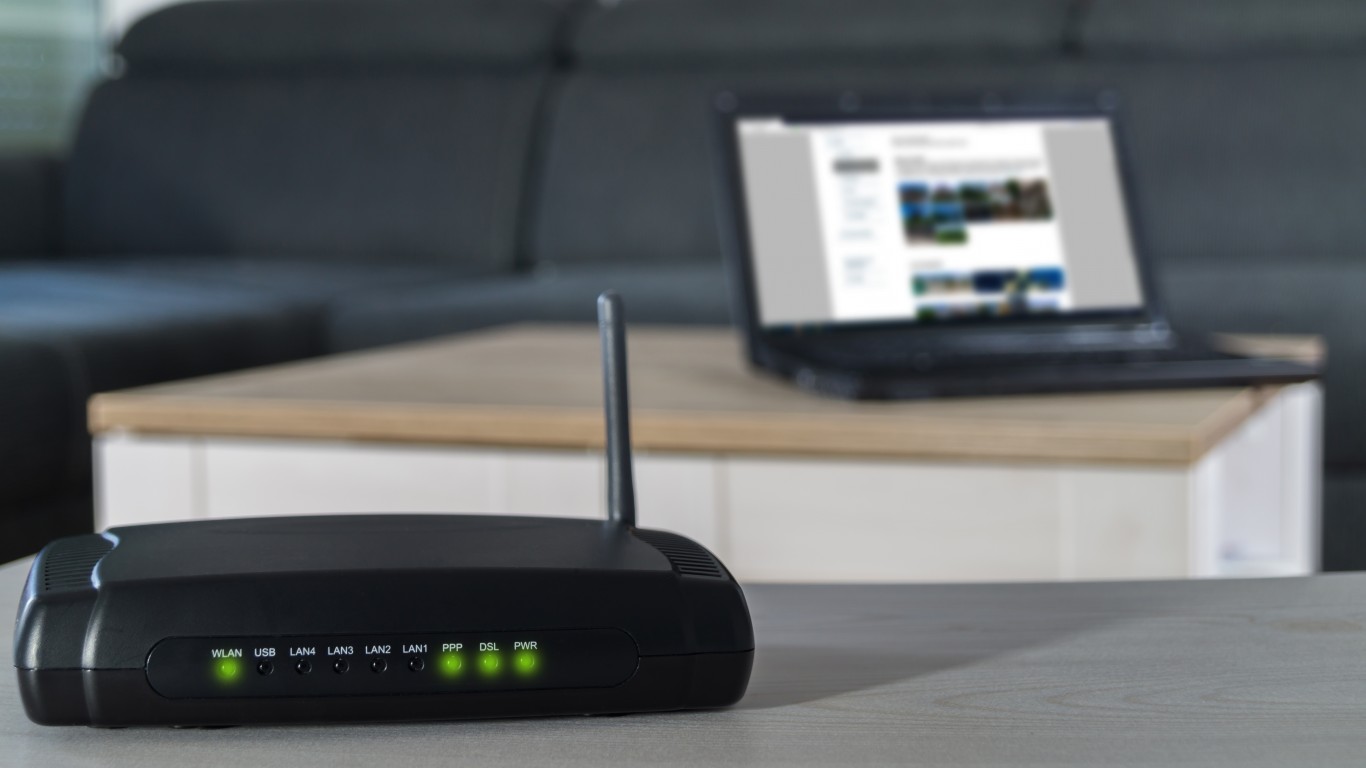
1. Speed up your internet
With so many people home and accessing the internet for social media, remote learning, and Netflix streaming, make sure you have a speedy router to handle the extra volume. If you need ideas about what to watch, these are the best original series made for streaming.
[in-text-ad]
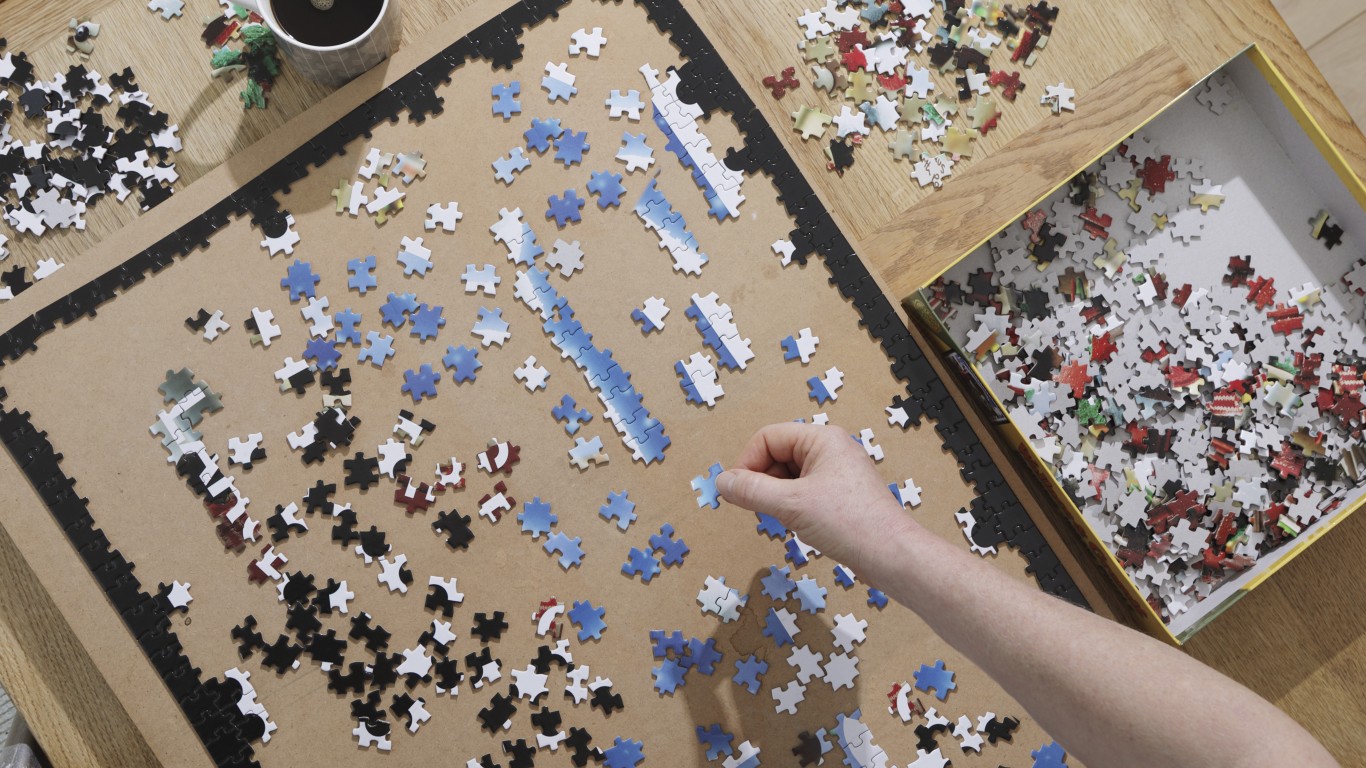
2. Do giant jigsaw puzzles
Jigsaw puzzles are a relaxing, low-tech, and time-consuming pastime while we’re all locked down — especially if you’re tired of looking at a computer screen or watching television. You can do them on your own or involve the whole family.
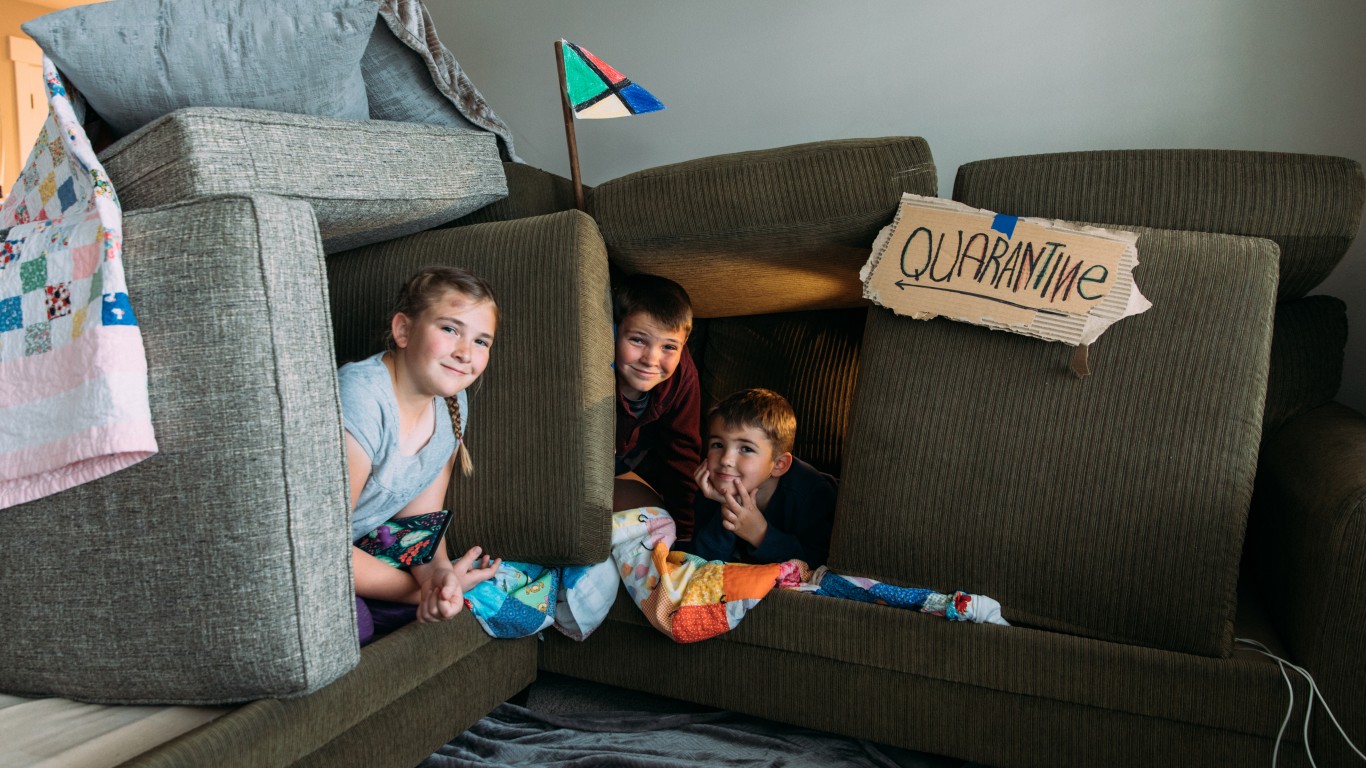
3. Build a fort
To keep the children busy, have them assemble a fort out of items you can find around the house — couch cushions, towels, blankets, flashlights. It’s an adventure within the home, and adults can participate as well, transporting them back to their own childhoods.

4. Schedule karaoke nights
If you’ve balked at performing karaoke at bars or clubs, take advantage of your time at home to tap karaoke videos via YouTube. There are plenty of songs to choose from, but these are the 100 absolute best songs in history.
[in-text-ad-2]

5. Start a family photo book
Now that much of the country is under quarantine, there is plenty of time to catch up on compiling and assembling family pictures in a photo book.

6. Take classes online
You’ve always wanted to take that Asian cooking class, attend a spinning workout, speak Spanish, or learn about digital photography. Online classes can be a stimulating way to relieve boredom.
[in-text-ad]
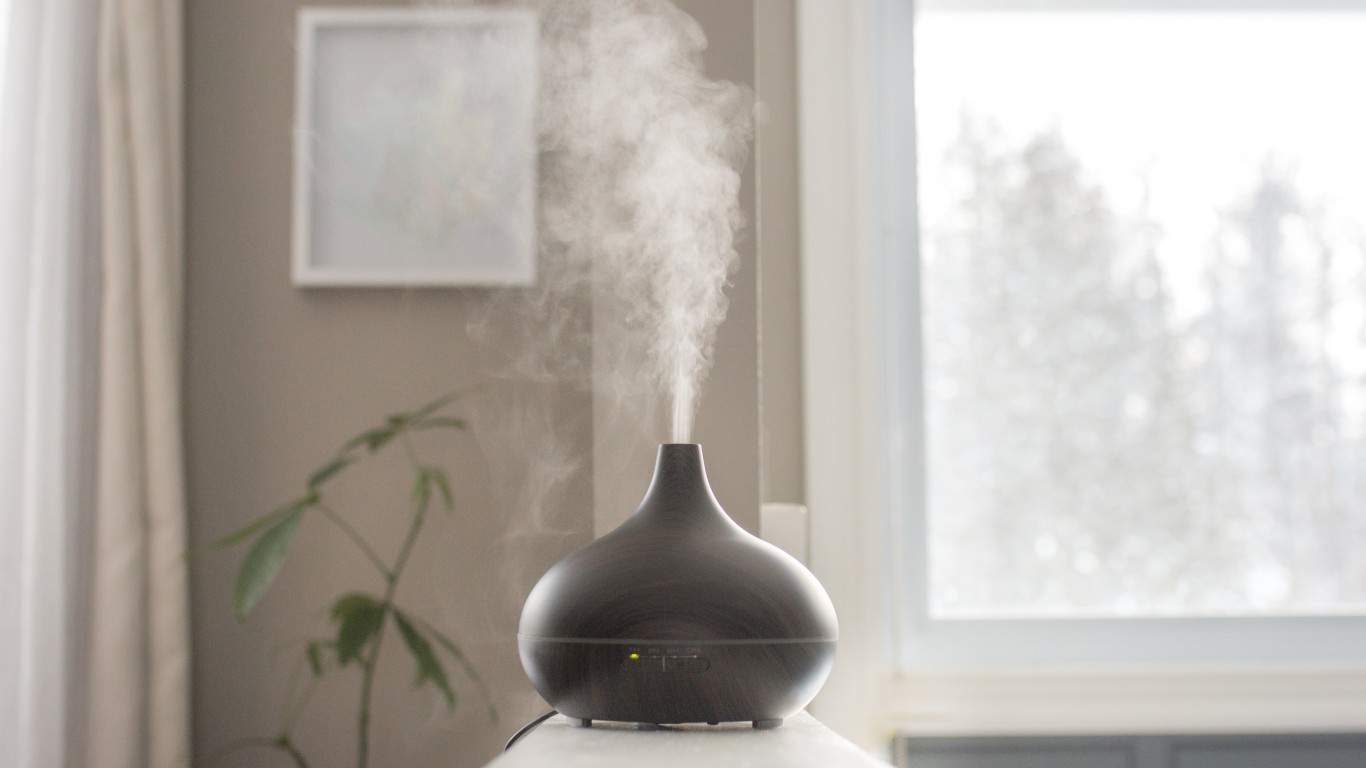
7. Get an essential oil diffuser
Oil diffusers do more than make your environment smell better and lift your mood. They also provide healthful benefits, such as relieving allergy symptoms. Some symptoms are not very obvious — these are 16 symptoms you may not know are actually allergic reactions.

8. Use a weighted blanket
Weighted blankets, which weigh anywhere from 5 to 30 pounds, are coverings that simulate pressure as applied by one’s hands and relax the nervous system. This kind of pressure has been known to boost the neurotransmitter serotonin, which helps to regulate sleep and provide a calming effect.
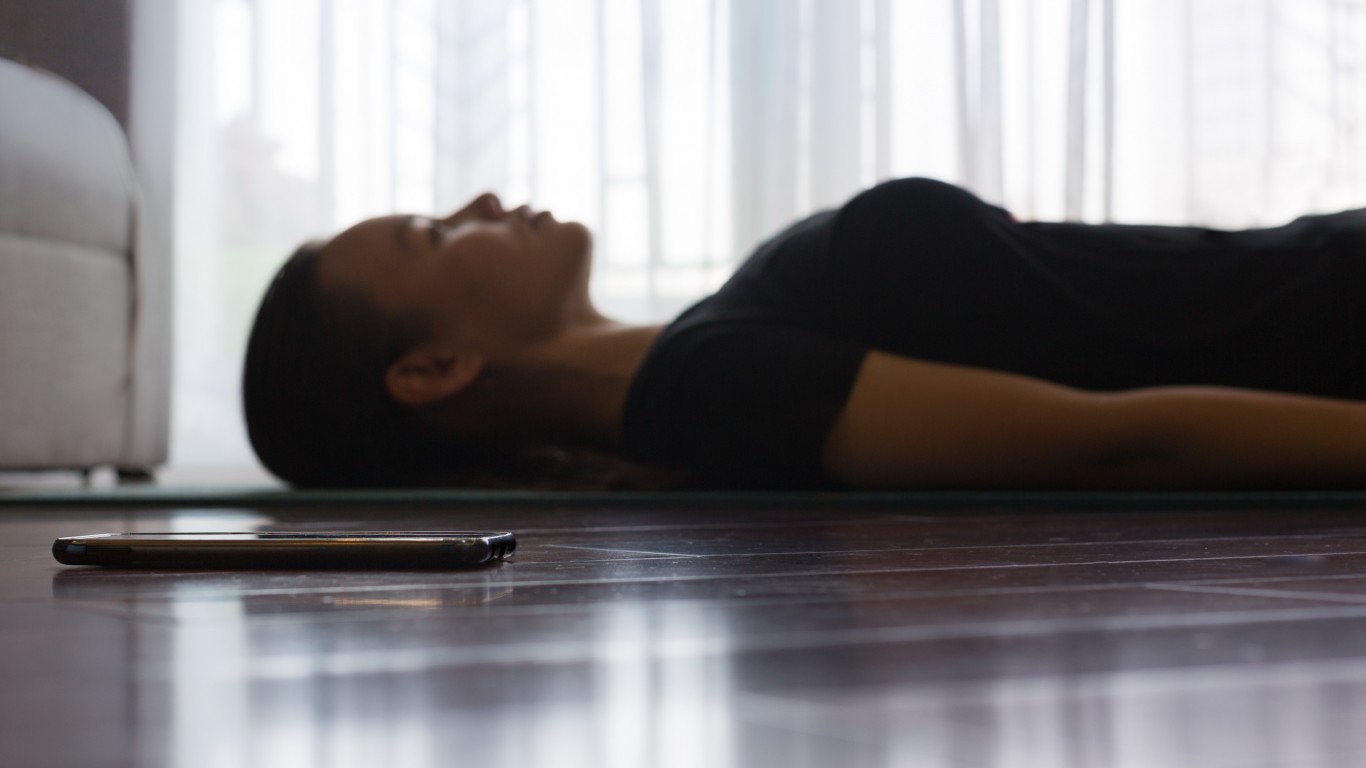
9. Try meditation and mindfulness apps
Time in home isolation provides you with an opportunity to access meditation and mindfulness apps. They can provide a welcome departure from the stress of the news and improve your mood.
[in-text-ad-2]
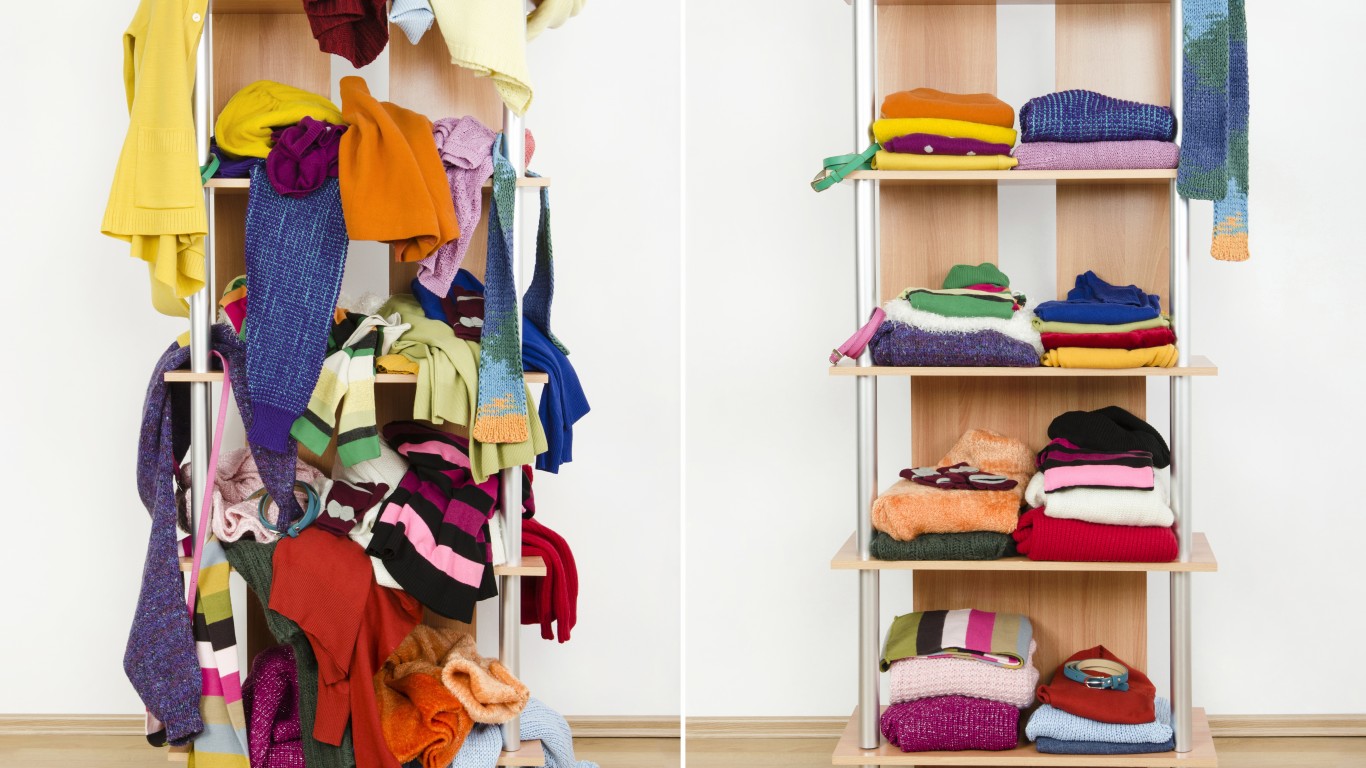
10. Declutter your home
Being surrounded with too much stuff may not be healthy. Studies on the effects of decluttering one’s space offer some evidence that it benefits mental health. Cluttered rooms are distracting, make people feel more anxious, and may contribute to insomnia. Cleaning up a home can seem like a daunting task, but you can make the job easier if you have a list of items to get rid of (many of which can be donated or recycled). Here are 50 essential items it’s probably time to replace.

11. Use science kits
You might remember creating your own erupting Mount Vesuvius when you were a child through materials found around the house. You can revisit the wonder of discovery with your kids and pass the time with science kits or experiments.
[in-text-ad]

12. Exercise
The gym and local parks might be closed, but you can make the most of your time at home by starting an exercise regimen. You don’t need much space to do squats, situps, pushups, stretches, or lift dumbbells. There are a trove of YouTube videos to choose from. Going outside for a walk is allowed. Make the most of the opportunity — here are 30 reasons why walking is the best exercise.

13. Stop reading coronavirus-related news
It’s important to moderate your consumption of news and social media posts related to the pandemic because the news has been relentlessly grim. Experts suggest turning off electronic media at least one hour before you go to bed.

14. Choose the right lighting for your home
Lighting is an often overlooked and underappreciated aspect of your environment. The right lighting lifts moods and increases productivity. Among the strategies for the best lighting for a room: mix up the sources of light, illuminate corners of a room, and reduce bright lighting for bathrooms.
[in-text-ad-2]

15. Have meal theme nights
Making a meal theme for particular nights gives families in isolation something to look forward to. Besides its alliterative advantage, so-called Taco Tuesday is also a simple and fun meal to plan for.

16. Start every day with a to-do list
Making a to-do list gets you organized, gives your day purpose, and lifts you out of the doldrums. Your list can include tasks that have to be done — laundry, paying bills, cleaning the house — to fun diversions like playing Scrabble, charades, or board games with the family.
[in-text-ad]

17. Create a budget
Now may be a good time to get your finances in order. It will help going forward if you create a plan that ensures you don’t spend more than you can afford. There are many apps you can download that can help you to organize your finances and become debt-free. Go over regular bills and see what you can do to save money. Grocery shopping can be a slippery slope in times of quarantine. Some people may feel there isn’t much to do but cook and eat, so — here are 20 signs you’re spending way too much money on food shopping.

18. Go to bed at the same time every night
Staying at home all day can be a major disruption to your usual schedule. Transitioning to this new reality is challenging but it helps to keep everything as normal as possible. While there are many things you can’t control right now, going to bed and waking up at the same time every day is one trick totally within your control. It may even help you to sleep better.

19. Keep your house at a comfortable temperature
A hot room will raise your body temperature and make you uncomfortable. A cold room probably won’t make you feel great either. Since you’re spending a considerable amount of time in your home, it should be comfortable. Use the heat or air conditioner as needed. If you want to reduce your carbon footprint, use a fan — you can put a box fan in a window to push out warm air. Here are 30 ways you can make your life more environmentally friendly.
[in-text-ad-2]

20. Clean up your social media accounts
You probably follow too many people on Facebook, Twitter, and whatever other social media accounts you have. And, as a result, you’re probably seeing the same feeds — news, statuses, and pictures from the same people. Since you are likely on your phone even more these days, change things up and diversify your feed. Who knows…maybe you’ll reconnect with old friends.

21. Take naps
Naps are important not only because they can boost your mood but also because they play a role in how people process emotions. This skill could come in especially handy when you’re living in close quarters. People who don’t take naps tend to focus more on negative emotions and those who have napped during the day tend to focus more on the positive, according to some research. Have trouble sleeping? Here are 25 tricks for a better night’s sleep.
[in-text-ad]

22. Have flowers inside the house
Flowers will almost certainly make your home look more beautiful, but they may also improve your mental health. Some research suggests they can reduce pain and stress levels. It’s no wonder then that people send flowers to patients in hospitals.
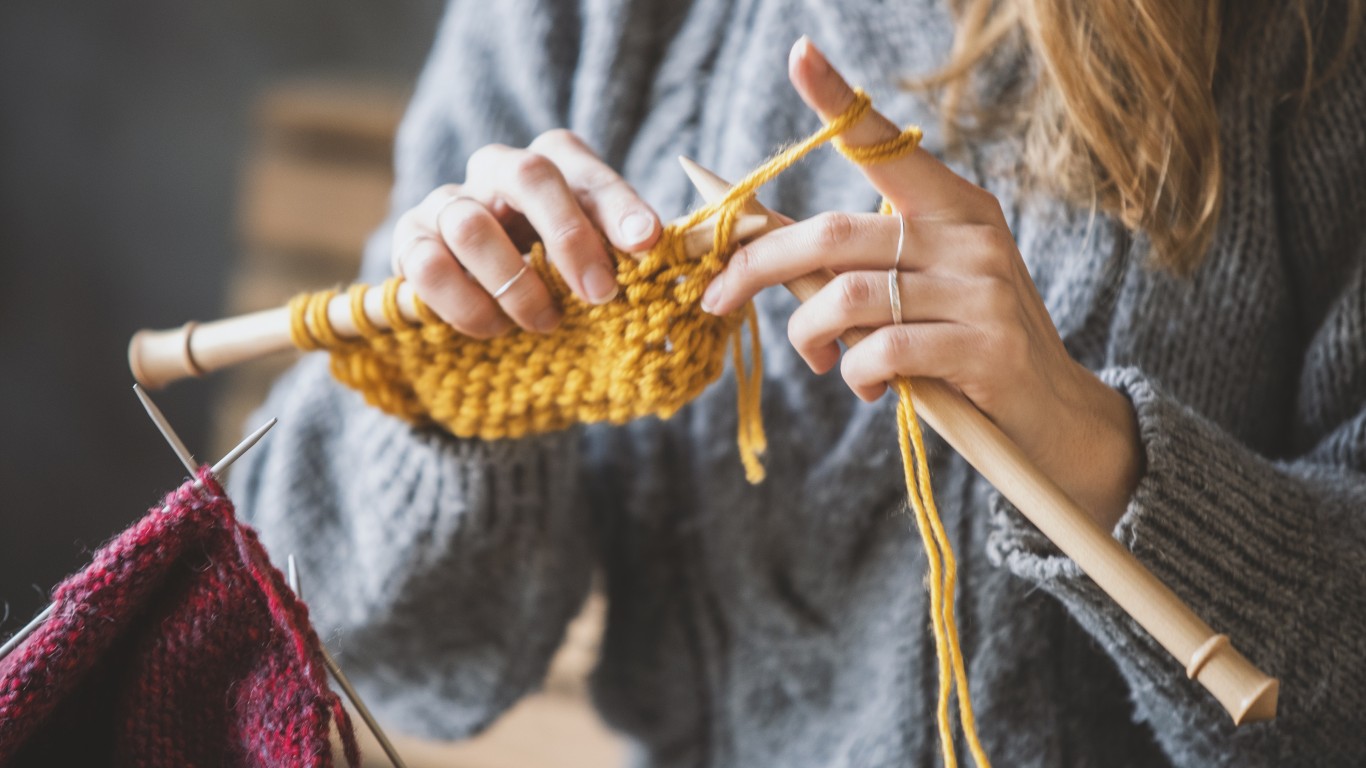
23. Learn a new hobby
Take up a new hobby like knitting, jewelry making, or hand-lettering. You may be surprised how happy learning something new makes you feel. Maybe you can even earn extra cash. Some hobbies can become side businesses — or possibly full-time jobs. These are 20 hobbies you can actually make money on.

24. Create a garden
Creating a garden may have benefits beyond keeping yourself busy. An indoor garden may improve the quality of the air inside your home. And working in your garden may also help improve your mental health. Some research suggests it’s therapeutic because it helps relieve stress and anxiety. Some research has even found that green spaces are linked to a lower risk of developing psychiatric disorders.
[in-text-ad-2]

25. Unleash your creativity in the kitchen
Now is the time to try that recipe you’ve always wanted, to finally learn how to make sushi at home, or bake some of Julia Child’s delicious cakes. Use the time you save commuting to and from work to make an nontraditional breakfast — here are 25 iconic sandwiches you can make at home — or a fancy dinner.
After two decades of reviewing financial products I haven’t seen anything like this. Credit card companies are at war, handing out free rewards and benefits to win the best customers.
A good cash back card can be worth thousands of dollars a year in free money, not to mention other perks like travel, insurance, and access to fancy lounges.
Our top pick today pays up to 5% cash back, a $200 bonus on top, and $0 annual fee. Click here to apply before they stop offering rewards this generous.
Flywheel Publishing has partnered with CardRatings for our coverage of credit card products. Flywheel Publishing and CardRatings may receive a commission from card issuers.
Thank you for reading! Have some feedback for us?
Contact the 24/7 Wall St. editorial team.